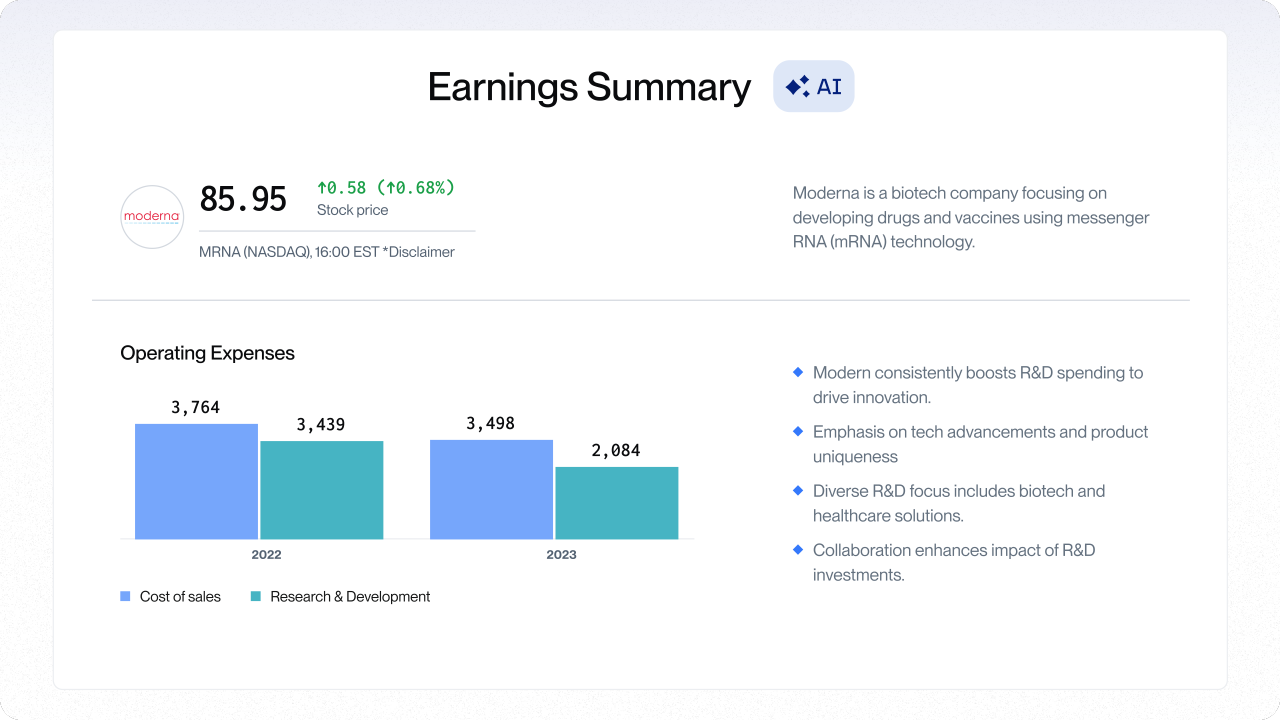Investors today grapple with an unprecedented influx of data from diverse sources, making the efficient processing and analysis of it paramount. The growthToday we’re taking a look at AI through the lens of a usual PE lifecycle, highlighting practical examples and strategic applications:
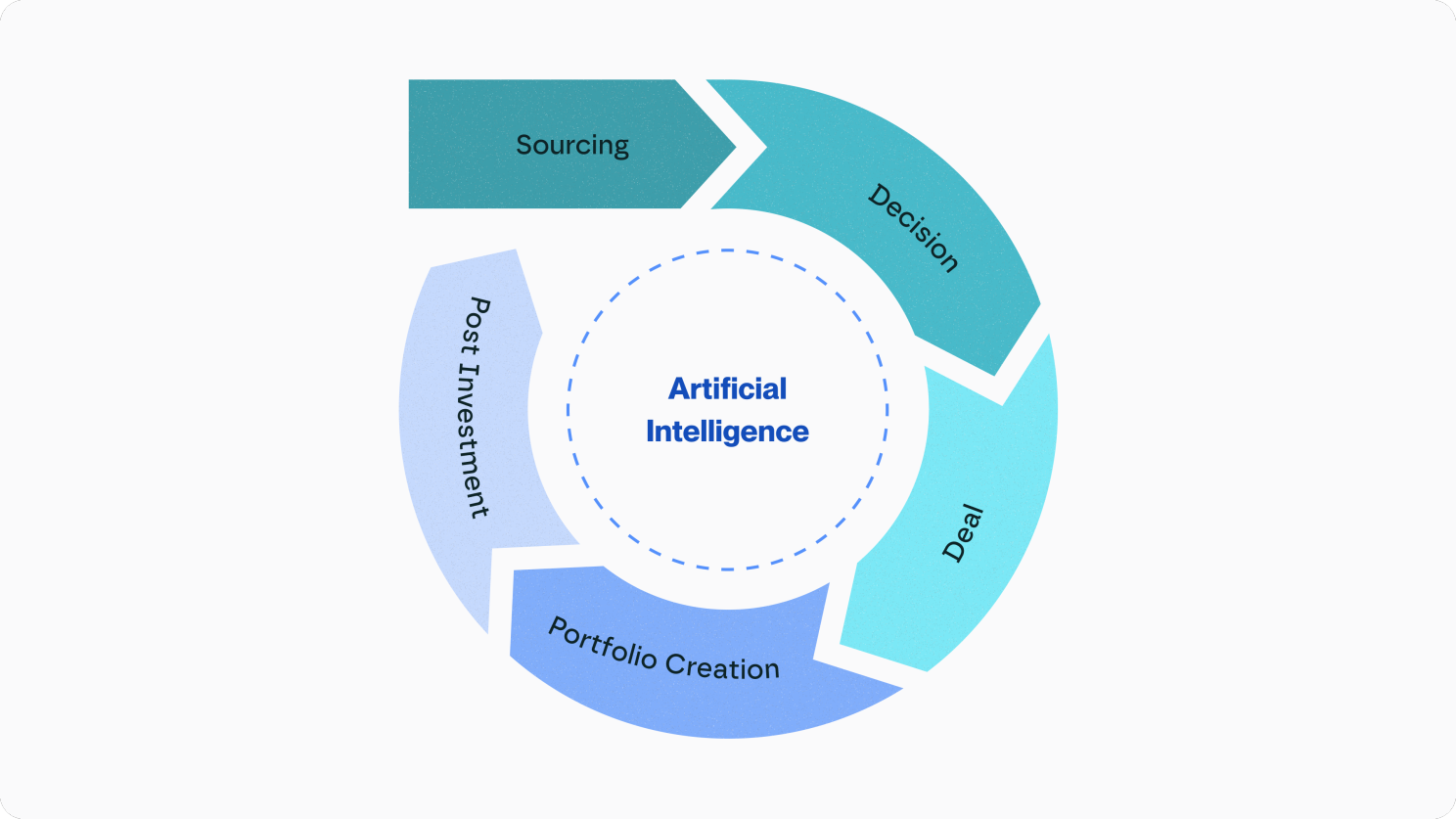
Finding an Investment: Streamlining Sourcing & Screening
Automated screening
Private equity firms leverage AI to automate and enhance the efficiency of the deal-sourcing process. For instance, BC Partners uses generative AI to screen thousands of potential targets efficiently, significantly reducing the time spent by up to 50-60%. Similarly, EQT’s Motherbrain platform utilizes AI to sift through vast datasets to identify potential investment targets, streamlining the investment process with improved accuracy and returns (Inven | Find M&A targets 10x faster).
“We can certainly use GenAI for easier information gathering and filtering on news, results, conference presentations, media statements, market whispers, probability/timing of businesses we like coming to market etc,” he added. “This is work that takes our associates a lot of time and effort can be made more efficient and faster and could potentially surface something we had not been aware/thinking of. “In our sectors and geographies, we generally know which target companies meet our investment criteria; where GenAI can be very helpful is in identifying add-on opportunities in the private markets.”
Lakshman Charanjiva, Partner and Portfolio Chief Technology Officer - BC Partners
Predictive Analytics for Market and Sector Trends
AI platforms like Udu are employed to find and surface hard-to-find targets across industries by analyzing thousands of data sources in real time, helping PE firms identify potential investments that might otherwise be overlooked.
One use case cited by Udu is from sbLiftOff - who used the platform to identify high-value targets for acquisitions by automating the search and data collection processes. The platform employs advanced machine learning algorithms that scan through a vast array of data sources to find potential targets that match specific criteria set by the client. These criteria can include industry relevance, financial stability, growth potential, and other key performance indicators relevant to the client's strategic goals.
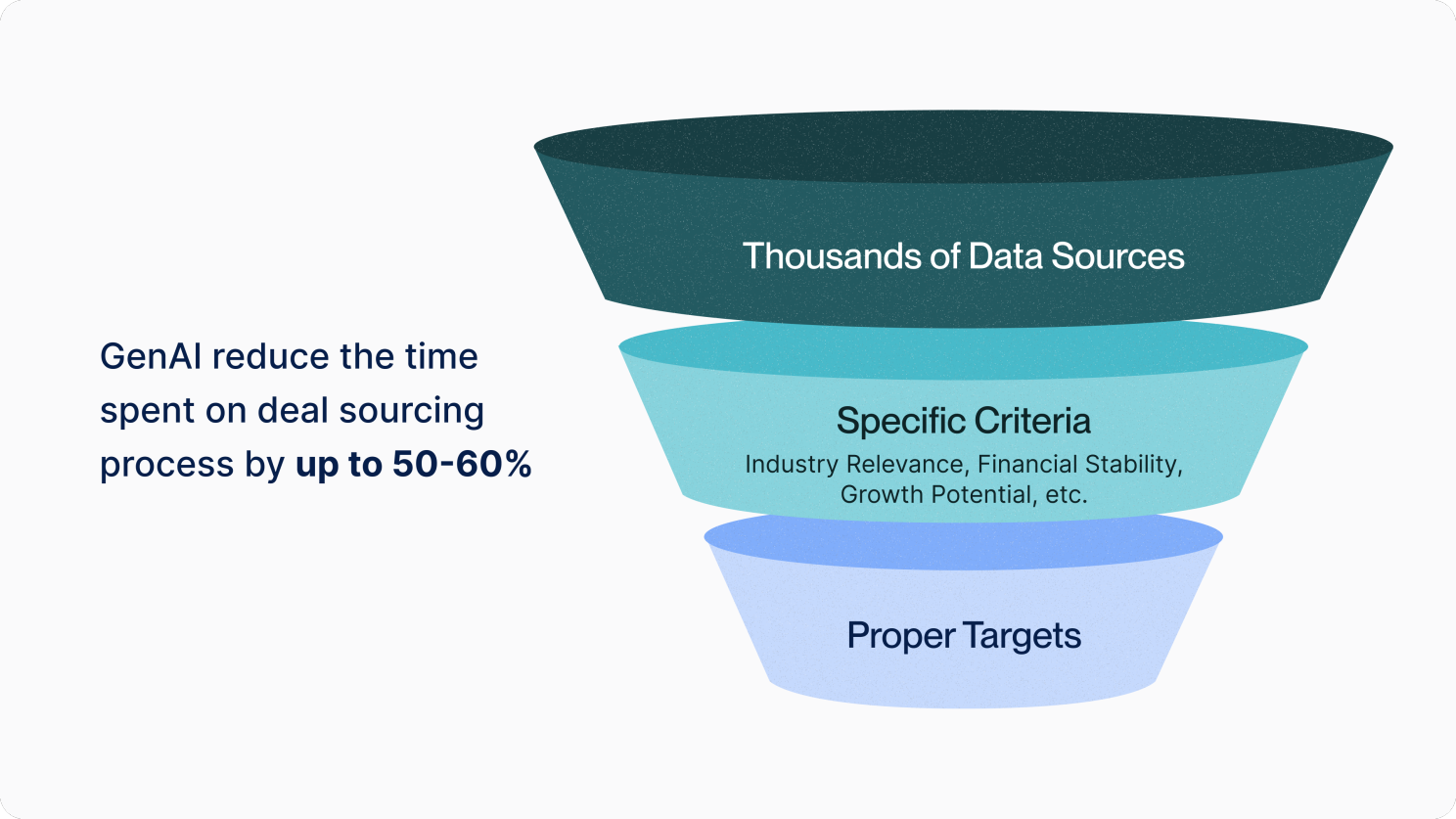
Making the Investment Decision
Risk analysis
Machine learning can help investors identify patterns and trends that may indicate potential risks — in both your portfolio and pipeline. One example is early warning signal detection. By monitoring data in real-time, AI-powered systems can detect early signals of potential risks. For example, sudden changes in financial metrics, market sentiment, or industry regulations can trigger alerts, allowing firms to take proactive measures promptly.
Competitive and Sentiment Analysis:
The AI-powered diligence system developed by Mphasis integrates advanced machine learning (ML) and natural language processing (NLP) technologies to enhance due diligence processes in private equity. This comprehensive system is designed to extract and analyze key factors from customer reviews across various industries, such as financial services, utilizing NLP-based ML models. These models compute the importance of factors like customer service or product quality, assess sentiment distribution, and predict future sentiments in new reviews.
Additionally, the platform leverages machine learning to analyze employee sentiments regarding critical success factors such as work culture and compensation, and employs customized text classification models for analyzing survey responses. This AI framework provides deep, actionable insights by cross-comparing firms and evaluating key performance metrics across competitors.
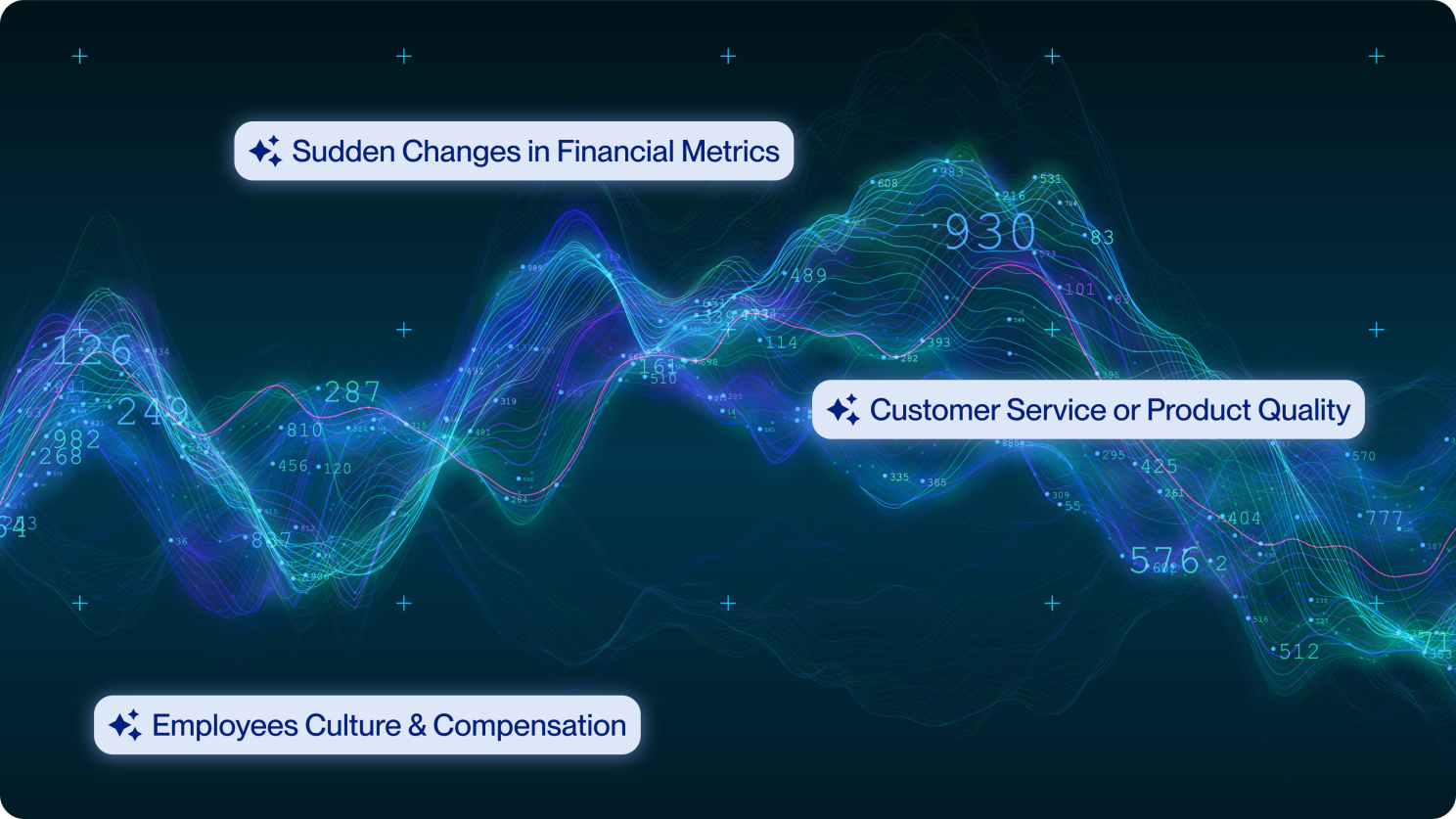
Making the Deal: Smart Contracts
Smart contracts in private equity are becoming a practical solution for managing complex financial transactions, particularly tranched investments. A tangible example of smart contracts being utilized in the private equity space is Northern Trust. They use blockchain technology for managing legal clauses in private equity funds. This implementation facilitated the negotiation, review, and digital signing of legal agreements, proving significant in enhancing the efficiency and security of these transactions.
Smart contracts are handled on the blockchain and can automate the enforcement and management of specific contractual terms, such as the release of investment tranches based on predefined performance metrics. This use of technology reduces the likelihood of disputes and enhances transparency between involved parties - because every transaction and signature is protected by the blockchain itself.
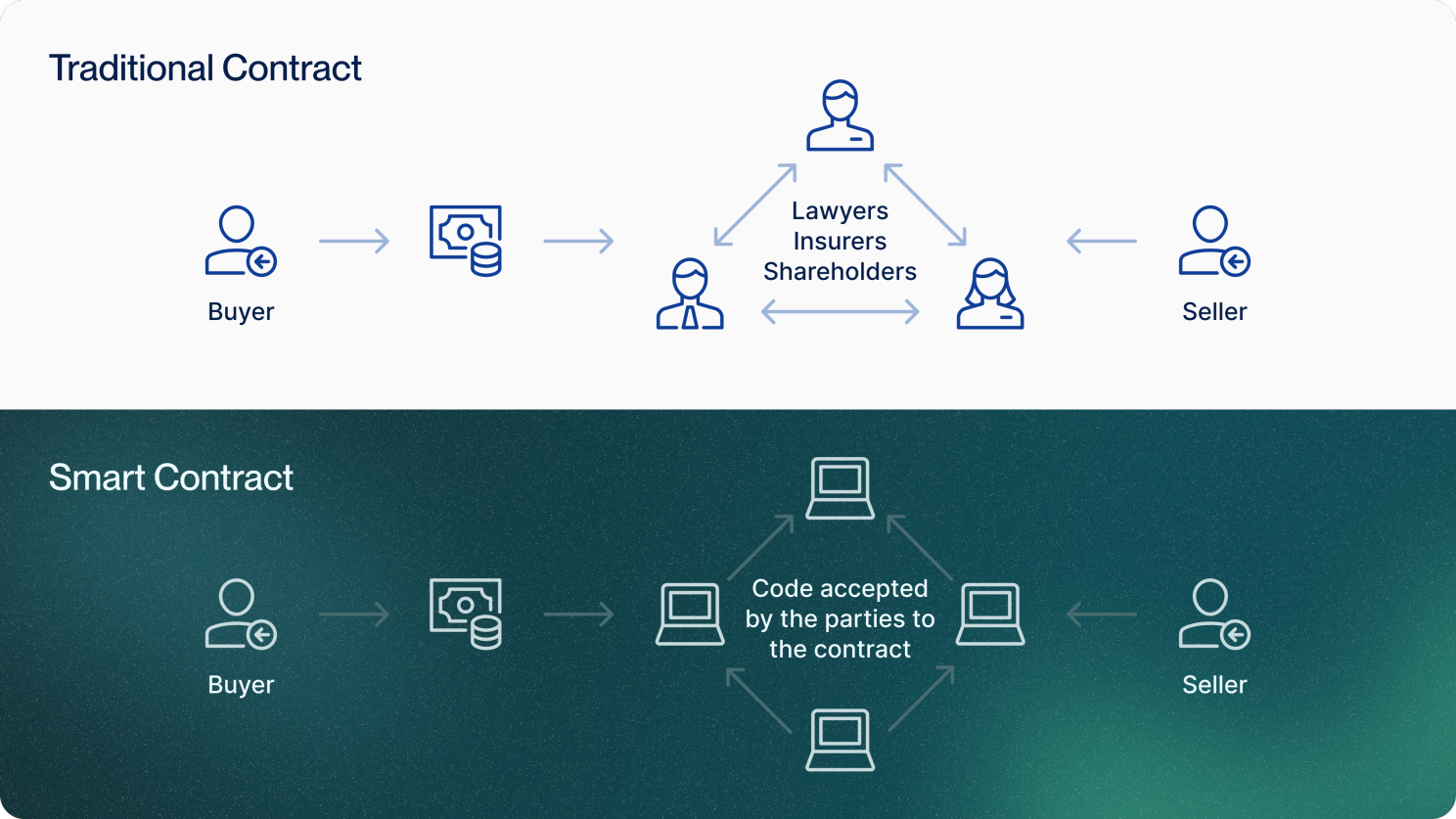
Blockchains themselves warrant a whole book to understand them fully - but to make it super simple, they operate on a ‘consensus of many’. The blockchain is like a digital ledger spread across a lot of computers around the world. Whenever a new entry (like a transaction or data change) is proposed to be added to this ledger, all these computers must verify and agree that the entry is correct and legitimate. This consensus prevents any single computer from being compromised and altering the record unilaterally. It's a way to ensure security and trust, as the collective must approve any changes to the shared record.
Constructing the Portfolio
Dynamic weightings and optimization
AI is increasingly being used for simulations and projections that enhance portfolio balancing. AI technologies enable firms to adjust the weightings of companies within their portfolios based on predicted future performance and market conditions.
For example, EY discusses how it is utilised to generate detailed scenarios and projections that help in strategic planning and risk assessment. These AI-driven tools are capable of analyzing vast amounts of data to simulate various market conditions and their potential impacts on portfolio performance, thus enabling more informed decision-making (EY US).
Longitudinal and Global Ecosystem Analysis
Continuous monitoring and analysis of industry sectors and global markets through AI help PE firms anticipate future trends and prepare strategically for upcoming innovations (Deloitte United States). In our previous blog, we have already seen how a portfolio (albeit in the public equity space) outperformed the S&P 500 by analyzing market trends and sentiment.
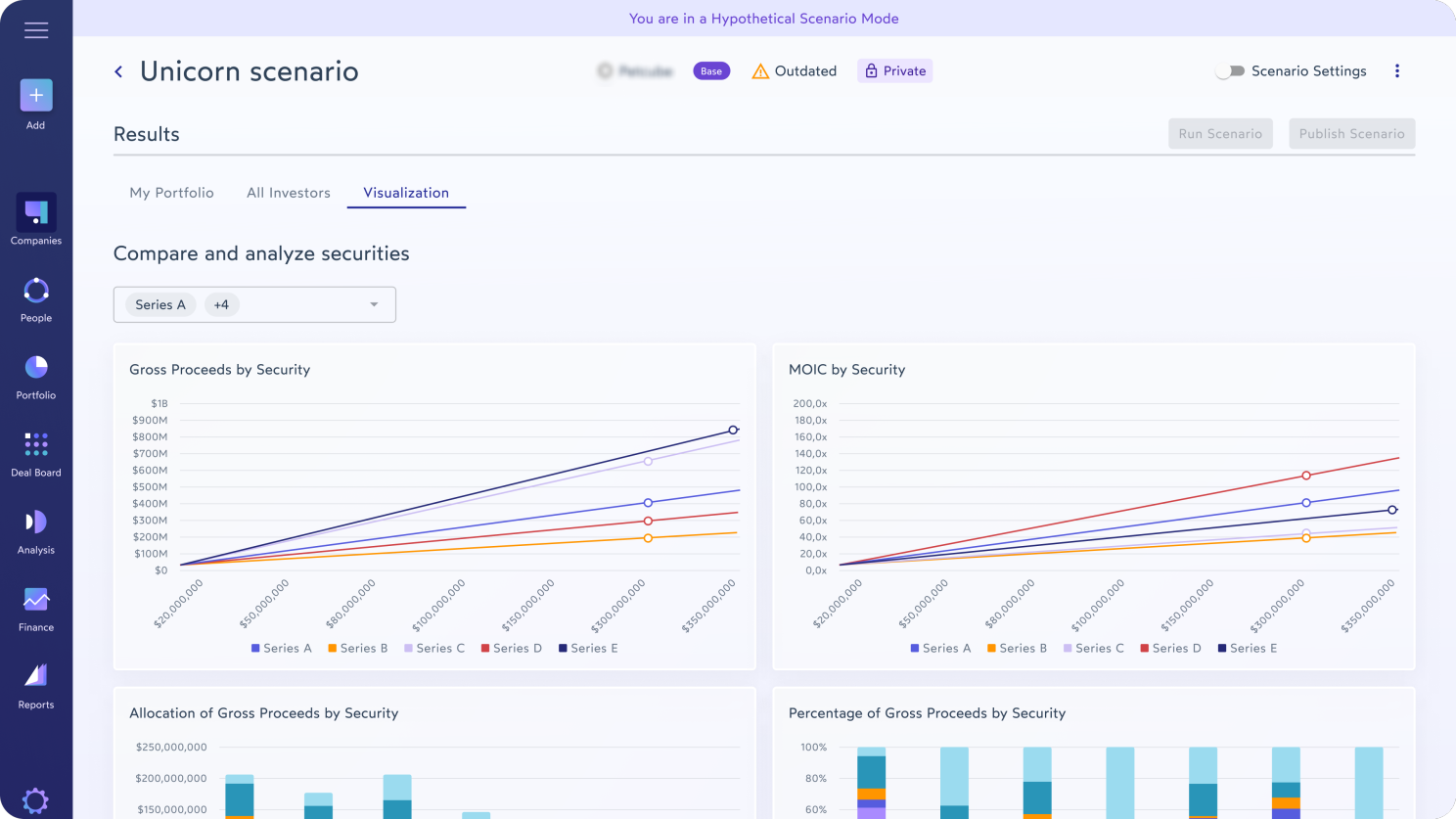
Post-Investment
Operational Efficiencies and Market Expansion Strategies:
AI can enhance day-to-day business operations, particularly in areas like supply chain management and reducing CO2 emissions.
For example, Siemens has effectively integrated AI into its supply chain management by using AI-driven tools to locate alternative suppliers and predict challenges in the global electronics value chain. This approach not only strengthens the resilience of the supply chain but also enhances its efficiency by enabling real-time intelligence and cost analysis (AIX | AI Expert Network).
In terms of environmental sustainability, companies are adopting AI to significantly reduce their carbon footprint. Boston Consulting Group (BCG) has highlighted that AI can lead to overall emissions reductions of 5% to 10%, which translates to a substantial decrease in gigatons of CO2 equivalent if applied globally. AI facilitates this by providing deep insights into a company's carbon footprint, helping to predict future emissions, and recommending strategies to reduce them efficiently (BCG Global).
Additionally, the CO2 AI Product Ecosystem developed by CDP is another innovative application of AI in managing environmental impacts. This platform enables companies to exchange, measure, and manage emissions data down to the product level, enhancing transparency and accuracy in emissions reporting and helping companies achieve their decarbonization goals more effectively (CDP Homepage).
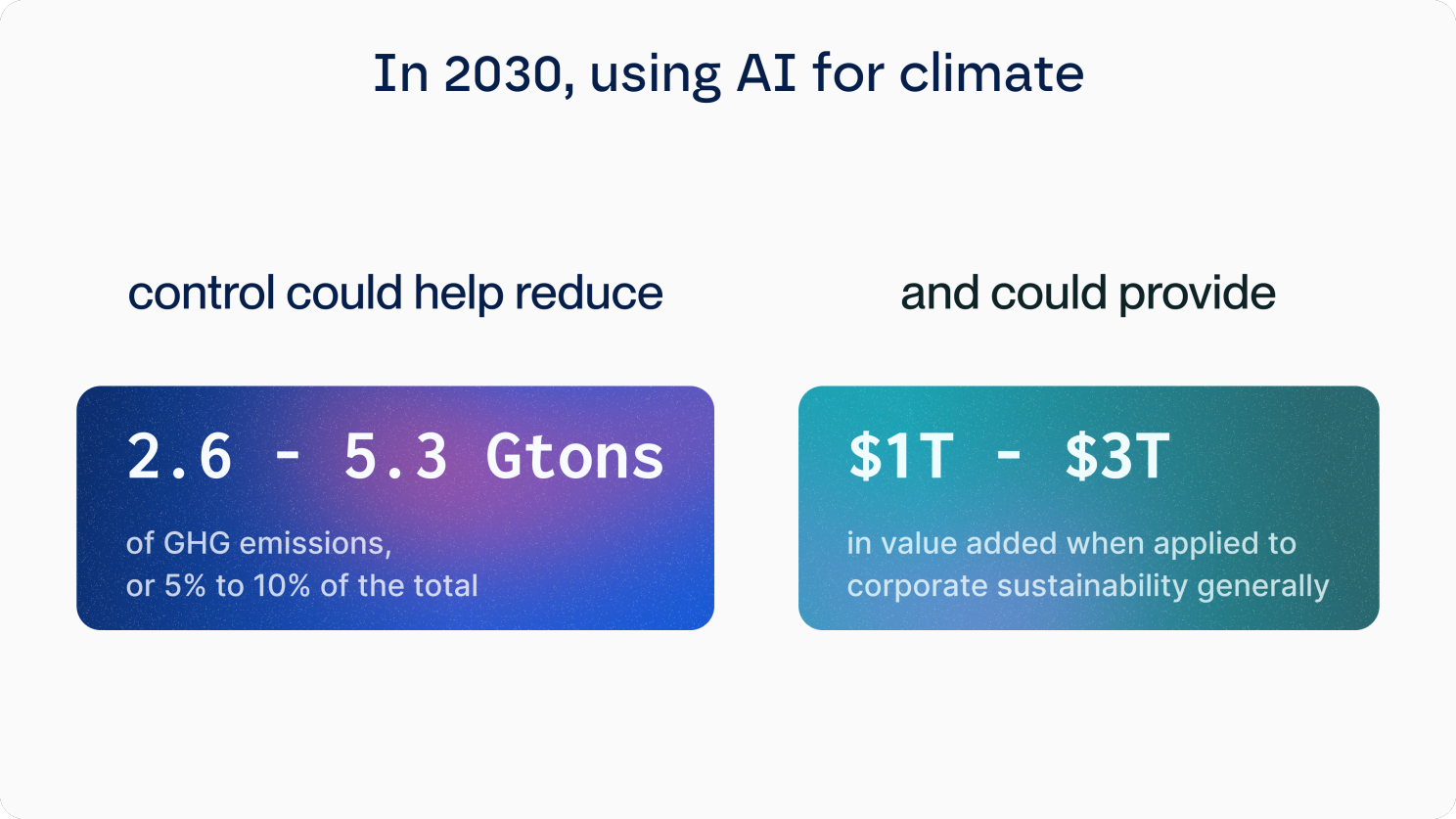
Conclusion
The strategic adoption of AI and advanced analytics allows PE firms to streamline their processes, enhance decision-making, optimize portfolio management, and support their investment targets more effectively. These technologies are redefining how private equity firms operate in an increasingly data-driven world, offering significant advantages that extend beyond traditional methodologies to innovative, high-impact strategies.



